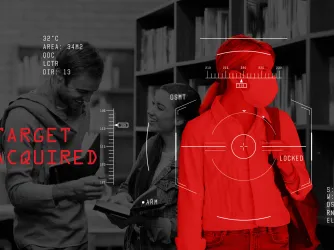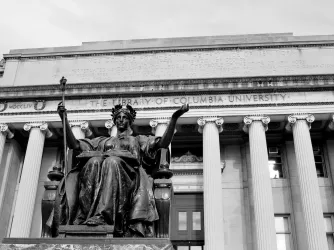Table of Contents
Cornell University Assembly Votes to Pass Disputed Non-Discrimination Clause in Campus Code of Conduct
Cornell University's University Assembly (UA) voted yesterday to include a disputed non-discrimination clause in the Campus Code of Conduct, the Cornell Daily Sun reports. The new clause, which expands the category of classes protected against discriminatory harassment on campus, provides insufficient protection for campus speech insofar as it applies a substantive standard for student-on-student harassment that falls short of the legal standard for peer harassment in education. The approved clause is the UA's second attempt to add new language about discrimination in the student code; a first draft was approved by the UA last April, but Cornell President David J. Skorton wisely insisted that it be revised to include protections for freedom of speech, association, and religion. Now, this second version, passed yesterday, threatens to impede Cornell students' expressive rights.
The new policy, which can be found on Cornell's website here (PDF), defines harassment as follows:
To harass another person because of his or her actual or perceived age, ancestry or ethnicity, color, creed, disability, gender, gender identity or expression, height, immigration or citizenship status, marital status, national origin, race, religion, religious practice, sexual orientation, socioeconomic status, veteran status or weight, when these behaviors are sufficiently severe or pervasive to have the effect of unreasonably interfering with an individual's educational experience, working conditions, or living conditions by creating an intimidating, hostile, or offensive environment in a manner that would violate Cornell University Policy 6.4, if it were applicable. [Emphasis added.]
The UA is a a governing body consisting of faculty, staff, graduate and professional students, and undergraduate students. Its webpage explains that it has "legislative authority" over, among other things, the Campus Code of Conduct and the Statement of Student Rights. The webpage also explains that the UA's legislative actions shall be reported to the university president, and that the UA "responds to any requests from the President for information or reconsideration of any actions." As such, it is our hope that President Skorton once again steps in and demands that the UA rescind the non-discrimination clause in order to provide the necessary protection for students' speech rights.
In the Daily Sun, John Cetta, a CFN member, 2009 FIRE summer intern and student representative to the UA, explains the problems with the new policy:
"There are numerous cases where poorly-worded resolutions have had severe effects at peer institutions," said Cetta. "The fact is that [the resolution] lacks any objective standard ... All these things create a perfect storm."
[...]
"Unless you have some sort of objective standard [for discrimination], someone can say, 'I was offended,' no matter how silly or misconstrued it may have been," Cetta said.
Well put. The fact remains that regardless of good intentions on the part of the UA, any discrimination or harassment policy which defines peer harassment on campus in less stringent terms than the standard established by the U.S. Supreme Court in Davis v. Monroe County Board of Education (1999) poses a threat to student speech rights. The Davis standard states that actionable harassment requires conduct that is "so severe, pervasive, and objectively offensive, and that so undermines and detracts from the victims' educational experience, that the victim-students are effectively denied equal access to an institution's resources and opportunities." The UA has unfortunately chosen not to abide by this controlling standard.
A critical piece of the puzzle still remains, however. Cornell has in the recent past used a non-discrimination rationale to deny a student organization, the Chi Alpha Christian Fellowship, the right to associate around shared beliefs. Last year, the Student Assembly froze the group's funding because it removed a member from a leadership position after the student disavowed core tenets of the group's beliefs. Given the misunderstanding of the freedom of association on Cornell's campus, there is an additional concern that the new non-discrimination clause will be used to deny organizations the important right to associate around shared beliefs.
As the Daily Sun clarifies, the new non-discrimination clause does not apply to student organizations at Cornell:
Since the U.A. cannot interfere with individual organizations, the clause would have had no effect on last year's controversy surrounding Chi Alpha Christian Fellowship that raised the question of a non-discrimination clause in the first place — when Chris Donohoe '09 was asked to step down from his leadership position in Chi Alpha after openly accepting his homosexuality.
Yet Brokman, who was appointed an at-large representative to the S.A. last week, remained optimistic that the S.A. would pass a resolution today dealing with discrimination in individual organizations.
FIRE will be closely following whether the SA passes that resolution today, and whether Cornell ultimately ends up imposing non-discrimination requirements on its student organizations that infringe upon those groups' freedom of association. FIRE followers and legal minds will recognize that this issue hits close to home with regard to our recently filed amicus brief to the Supreme Court in Christian Legal Society v. Martinez, which concerns the right of ideological and religious student groups to associate around shared beliefs when choosing leadership and membership. While we await the Court's decision in Martinez, I hope that Cornell does not act to deny its student groups that fundamental right. The result would only add to the problems posed by the passing of yesterday's resolution.
Recent Articles
Get the latest free speech news and analysis from FIRE.

FIRE statement on FCC approval of Skydance-Paramount acquisition

The mercenary spyware industry is a menace to global free expression

Smile for the surveillance state
